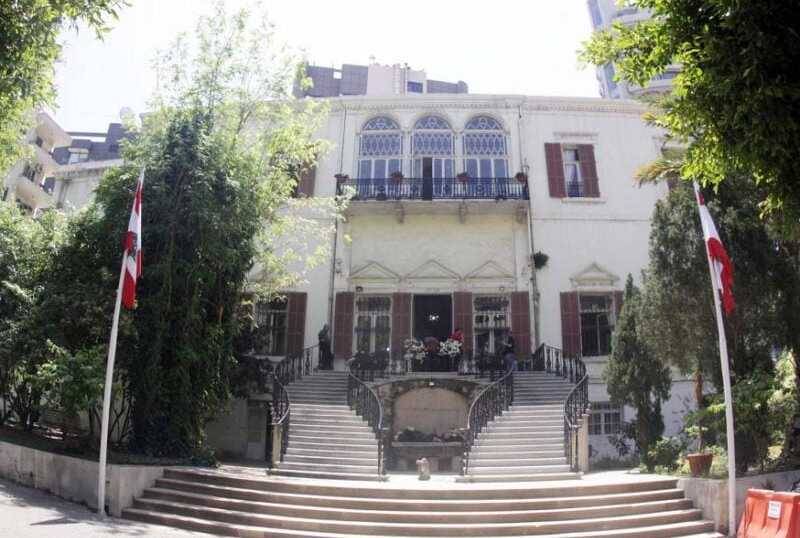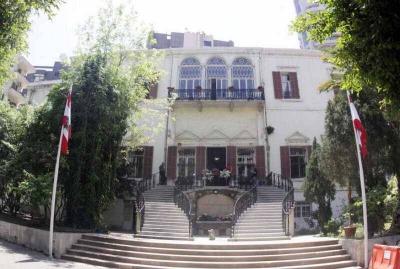In accordance with the directives of the Prime Minister, the Minister of Foreign Affairs and Expatriates instructed the Permanent Representative of Lebanon to the United Nations to file a complaint on January 9, 2024, before the United Nations Security Council in response to Israel's recent complaint regarding Lebanon's non-compliance with Security Council Resolution 1701. The complaint text includes a condemnation of the hostile actions carried out by Israeli forces against Lebanon since October 7, coinciding with its war on Gaza, and provides documented evidence of violations of Resolution 1701, as well as an attempt by Israel to shift responsibility onto Lebanon for its blatant violations of its sovereignty and territorial integrity.
The complaint cites various documented Israeli aggressions, which constitute a blatant violation of paragraph 1 of Resolution 1701. These include the ongoing Israeli military operations, the use of internationally banned phosphorous munitions targeting several areas in the vicinity of the towns of Aitaroun, Mays Al-Jabal, and Blida, resulting in the destruction of 50,000 olive trees and civilian cases of suffocation, representing a clear violation of international humanitarian law that amounts to war crimes. Furthermore, an Israeli drone targeted a press team with two guided missiles, resulting in their deaths and the death of an additional civilian who was in the area on November 21, 2023. These hostile acts, along with numerous military air sorties by Israeli warplanes and drones over Lebanese airspace, constitute a described violation of paragraph 4 of Resolution 1701, which reiterates the Security Council's strong endorsement of the full respect for the Blue Line.
It is noteworthy that these continuous and repeated Israeli aggressions have led to the displacement of more than 75,000 Lebanese citizens from their homes in southern towns. In light of the above, Lebanon expressed astonishment at Israel's repeated calls for extending the authority of the Lebanese government in areas adjacent to the Blue Line and for UNIFIL forces to assume their responsibilities efficiently and effectively, while Israeli forces directly targeted a Lebanese Army center in the south on December 5, 2023, with four shells, completely destroying it, martyring a Lebanese soldier, and injuring three military personnel, two of whom are in critical condition. Since the outbreak of hostilities on October 7, 2023, Israeli aggressions against Lebanese Army positions have totaled 34, in clear violation of paragraph 5 of Resolution 1701, reaffirming the Security Council's strong support for Lebanon's territorial integrity, sovereignty, and political independence within its internationally recognized borders, as stated in the General Armistice Agreement between Israel and Lebanon dated March 23, 1949.
Additionally, Israel's targeting of UNIFIL positions with shells and gunfire against its patrols undermines their efforts and poses a threat to their safety, representing an Israeli disregard for international legitimacy principles and a clear challenge to the mandate granted to UNIFIL under paragraph 12 of Resolution 1701. Israel continues to occupy the Shebaa Farms and Kfarshouba Hills and conducts engineering works in these areas, while also failing to delineate the boundaries at the 13 disputed points, hindering efforts to reach a long-term solution in accordance with paragraph 8 of Resolution 1701. Israel’s behavior in disregarding Resolution 1701 is part of a long-standing pattern of neglecting international resolutions since the issuance of Resolution 50 in 1948, through Resolutions 242 in 1967, 279 in 1970, 313 in 1972, and up to Resolution 425 in 1978.
Based on the above, Lebanon reaffirms its steadfast policy of the right to self-defense and restoring its rights through legitimate means, including resorting to the United Nations. It reiterates its commitment to fully implement Resolution 1701 and emphasizes its desire to de-escalate tensions and restore calm along the Blue Line. Lebanon has once again requested the Security Council to ensure the comprehensive and full implementation of Resolution 1701, within an integrated framework with clear and declared international guarantees, which could result in sustained security and broader stability. This includes delineating the southern international borders established in 1923 between Lebanon and Palestine, as confirmed in the armistice agreement signed between Lebanon and Israel on the Greek island of Rhodes under the auspices of the United Nations on March 23, 1949, and the full and explicit commitment of both countries to those borders.
This means completing the agreement on all 13 disputed border points. The United States may also be involved, as was previously done in the maritime border delimitation agreement between the two countries in October 2022. Moreover, a definitive cessation of all Israeli violations—land, sea, and air—of Lebanon's sovereignty and internationally recognized borders is required, along with the non-use of Lebanese airspace for bombing Syrian territories, and Israel's withdrawal to the agreed international borders, starting from point B1 in the Ras al-Naqoura area within the internationally recognized Lebanese borders, reaching the outskirts of the town of "Al-Mari," which partially represents the urban expansion of the village of Ghajar. Full withdrawal from the Shebaa Farms and Kfarshouba Hills is also necessary, in accordance with paragraph 10 of Resolution 1701.
The Lebanese government requests that the United Nations support Lebanon in exercising its authority over all Lebanese territories by strengthening its armed forces, particularly through enhancing their deployment south of the Litani River and providing them with necessary equipment and personnel in cooperation with UNIFIL, to ensure that no weapons exist without the approval of the Lebanese government and that no authority other than that of the Lebanese government exists, in adherence to paragraph 3 of Resolution 1701. Efforts should also be made to facilitate the safe and dignified return of displaced persons from border areas from which they fled after October 7, 2023.
In conclusion, the complaint asserts that Israel's commitment to Resolution 1701 also imposes upon it the necessity to respect paragraph 18 of Resolution 1701, which emphasizes the importance and necessity of achieving a comprehensive, just, and lasting peace in the Middle East through ending the Israeli occupation of Palestinian territories in accordance with relevant United Nations resolutions, particularly Resolutions 242 (1967) and 338 (1973), and the establishment of two states as per Resolution 1515 (2003).




